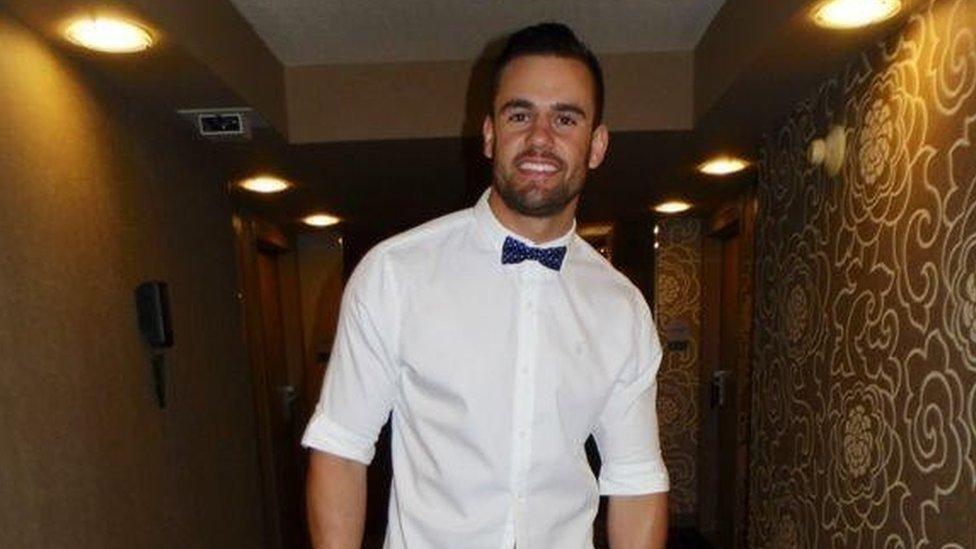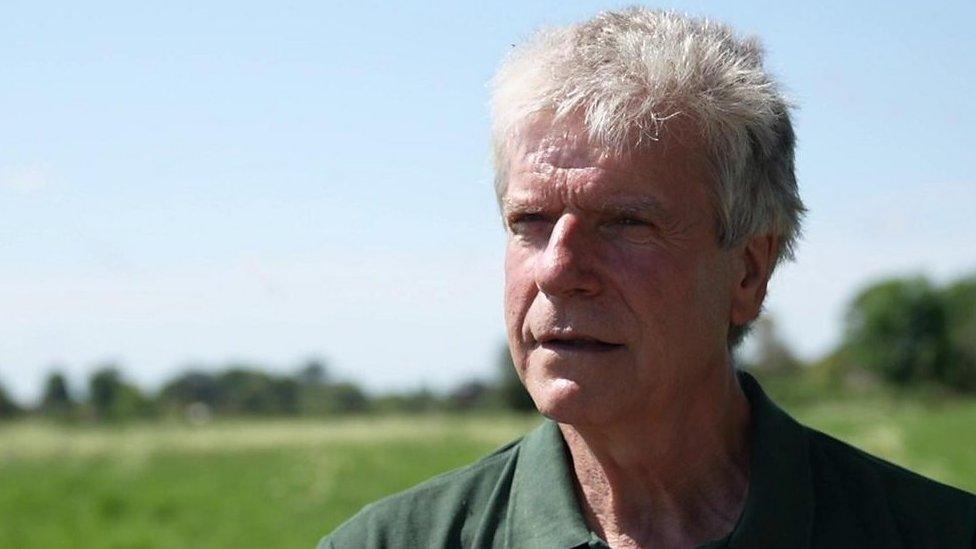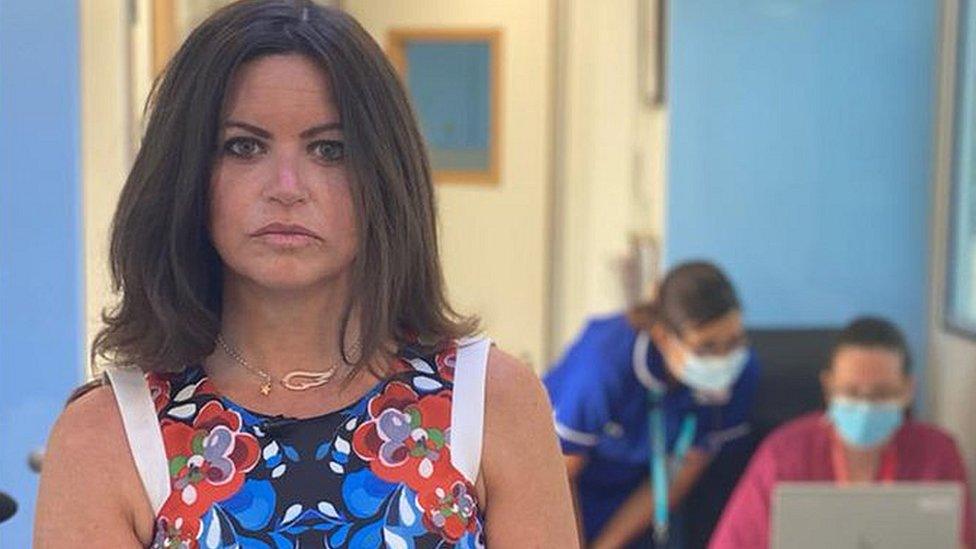Somerset bowel cancer charity releases awareness film
- Published

The Bowel Movement charity was set up in memory of Benjamin Millard, who died aged 33
Two women with experience of bowel cancer are sharing their stories in a film to raise awareness of the disease.
The film has been made on behalf of The Bowel Movement, a charity set up in memory of Benjamin Millard, who died from bowel cancer aged 33.
Mr Millard's sister Abby Morris features in the film, along with Bristol teacher Emily Harrison.
"It's vital we challenge this misconception that young people don't get bowel cancer," said Ms Morris, 35.
She set up the charity in memory of Mr Millard, from Frome, Somerset and discusses the impact of losing a loved one to the disease in the film called 'Don't sit on your symptoms'.
"On the face of it he was such a fit man," she said.
"When we heard the news, it was devastating. It was so hard to believe.
"Early diagnosis is so important and GPs have a big role to play in that," added Ms Morris.

Mr Millard's diagnosis came as a shock to his family
Bristol teacher, Ms Harrison, also appears in the film to talk about undergoing surgery and chemotherapy, after being diagnosed with the disease.
At first, she was told she was too young to have bowel cancer, even after showing symptoms such as chronic pain and bowel bleeding, and was diagnosed with stage three cancer six months later.
"I remember that day so well," she said.
"I kept asking 'am I going to die? And they just said 'we don't know'. It was such a scary time," added Ms Harrison.
'Reluctant to talk'
After beating the cancer, the teacher and mother-of-two decided to climb Mount Kilimanjaro.
"I just wanted to show cancer hadn't beaten me. I just wanted my children to be proud," she said.
Surgeon Paul Mackey, from Musgrove Park Hospital, Taunton, also features in the film to encourage people not to be embarrassed about coming forward.
"People are reluctant to talk about their bowel symptoms and their toileting habits - and that is a big issue," he said.

Follow BBC West on Facebook, external, Twitter, external and Instagram, external. Send your story ideas to: bristol@bbc.co.uk , external
- Published29 June 2022

- Published9 July 2022

- Published29 June 2022

- Published2 July 2022
